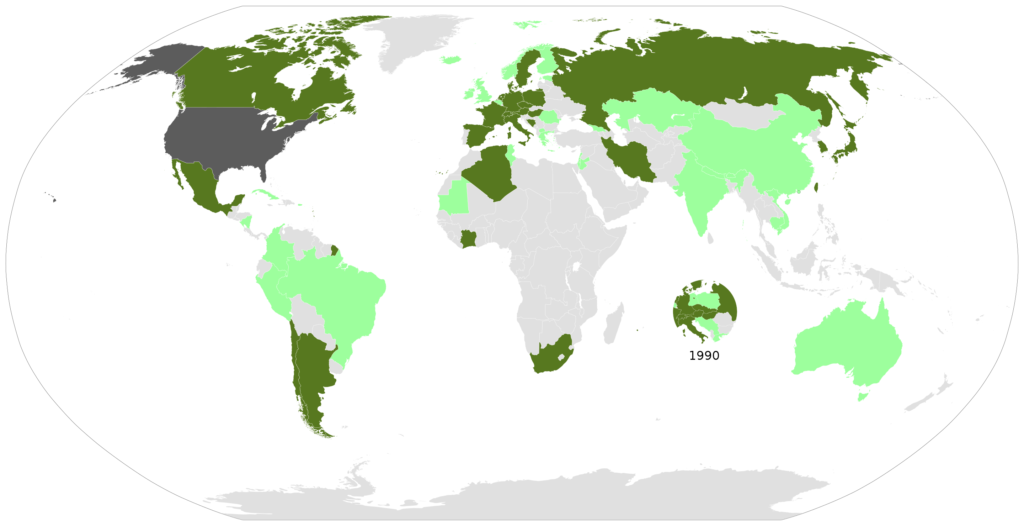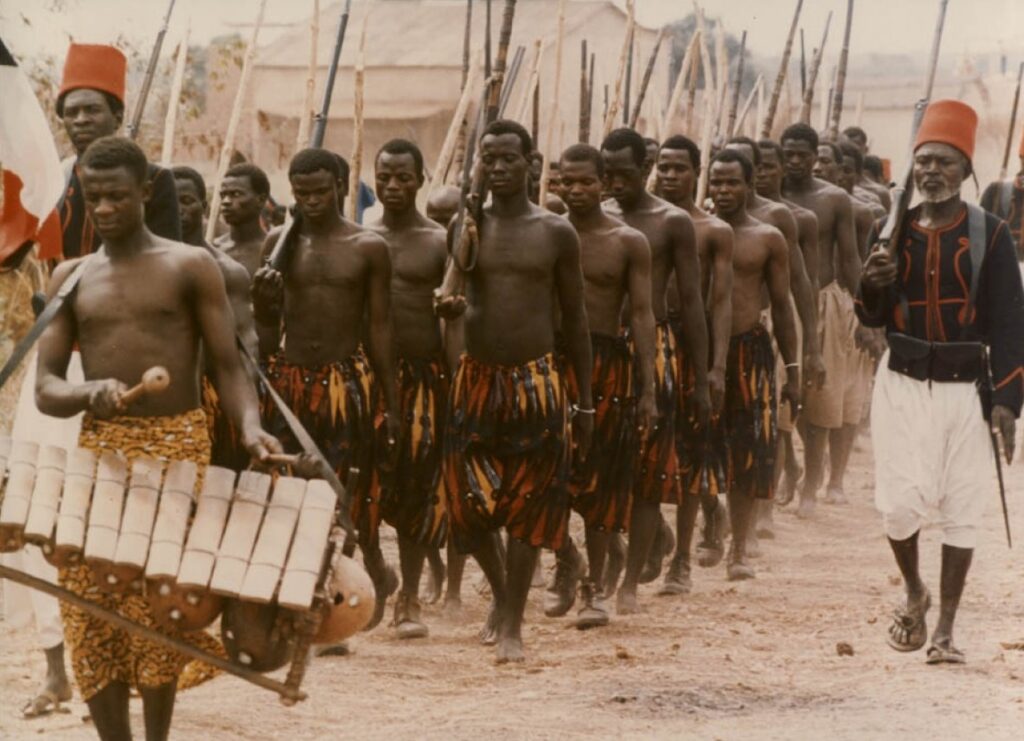(Photo above: TSOTSI, 2005)
The night of the Academy Awards (Oscar night) is upon us. It’s the film industry’s biggest event, and one of the most-watched telecasts in the world, despite declining ratings in recent years. But yes, the 95th Oscars celebration takes place on Sunday, March 12, airing at 6:30 p.m. EDT/3:30 p.m. PDT on the ABC network in the United States (in other parts of the world, check your local listings).
In anticipation, below are some Africa-related Oscar facts and stats that might be of interest to Akoroko readers; specifically with regard to films submitted for the Best International Feature Film award — a category that’s open to participation from every country.
Every year, since the award was created in 1956, the Academy of Motion Picture Arts and Sciences (AMPAS) has invited foreign film industries to submit their best films to compete for the International Feature Film Oscar.
The category was previously called Best Foreign Language Film. The name change happened in April 2019.

- Of the 54 (ish) countries that call the African continent home, 24 (less than 50%) have at least submitted a film to represent the country at the Oscars since the Best International Feature Film category was created in 1956.
- Of the 24 countries, 10 have seen their submitted films be nominated for the Best International Feature Film Oscar.
- Countries north of the Sahara have historically fared better than Sub-Saharan nations (aka “Black Africa”). Of the 10 films that have been nominated, half represented Algeria alone; one from Tunisia; and one from Mauritania. This means that 70 percent of nominees representing African countries have come from the north.
- The last time a film representing an African country received a Best International Feature Film nomination was Kaouther Ben Hania’s THE MAN WHO SOLD HIS SKIN, representing Tunisia at the 93rd awards ceremony in 2021.
- The last time a film representing an African country won the Best International Feature Film category was South Africa’s TSOTSI by Gavin Hood, at the 78th Oscars in 2006.
- TSOTSI’s win is one of three total wins for the continent, along with Costa-Gavras’ Z (Algeria) in 1969, and Jean-Jacques Annaud’s BLACK AND WHITE IN COLOR in 1976 (Ivory Coast) in 1976. All three were directed by white filmmakers; although Gavin Hood is South African.
- On the bright side, more countries are opting to participate. In the last five years, 10 countries submitted a film for the first time: Mozambique, Senegal, Niger, Malawi, Ghana, Nigeria, Lesotho, Sudan, Somalia, and Uganda. This is likely an indication of blooming film sectors across the continent, with the emergence of young, talented, and resourceful filmmakers growing up in an increasingly connected world, with increased access to professional training, funding, mentorship, and other resources, and growing international interest in African stories and culture.
- The 24 countries that have at least submitted a film for Best International Feature Film consideration follow, along with data on the number of submissions by each country, the year of the first submission, the number of nominations (if any), and the number of wins (if any):

- ALGERIA: 24 submissions, the first in 1969; nominated five times; won once — Costa-Gavras’ Z in 1969.
- SOUTH AFRICA: 18 submissions, the first in 1989; nominated twice; won once — TSOTSI by Gavin Hood in 2006.
- IVORY COAST: three submissions, the first in 1976; nominated once; won once — Jean-Jacques Annaud’s BLACK AND WHITE IN COLOR in 1976.
- TUNISIA: nine submissions, the first in 1995; nominated once; never won.
- MAURITANIA: one submission, in 2014; nominated once; never won.
- EGYPT: 36 submissions, the first in 1958; never nominated.
- MOROCCO: 18 submissions, the first in 1977; never nominated.
- KENYA: seven submissions, the first in 2012; never nominated.
- CAMEROON: five submissions, the first in 1980; never nominated.
- ETHIOPIA: four submissions, the first in 2010; never nominated.
- SENEGAL: four submissions, the first in 2017; never nominated.
- CHAD: three submissions, the first in 2002; never nominated.
- TANZANIA: two submissions, the first in 2001; never nominated.
- MALAWI: two submissions, the first in 2018; never nominated.
- NIGERIA: two submissions, the first in 2018; never nominated.
- BURKINA FASO: one submission in 1989; never nominated.
- DRC: one submission in 1997; never nominated.
- MOZAMBIQUE: one submission in 2017; never nominated.
- NIGER: one submission in 2018; never nominated.
- Ghana: one submission in 2019; never nominated.
- LESOTHO: one submission in 2020; never nominated.
- SUDAN: one submission in 2020; never nominated.
- SOMALIA: one submission in 2021; never nominated.
- UGANDA: one submission in 2022; never nominated.
